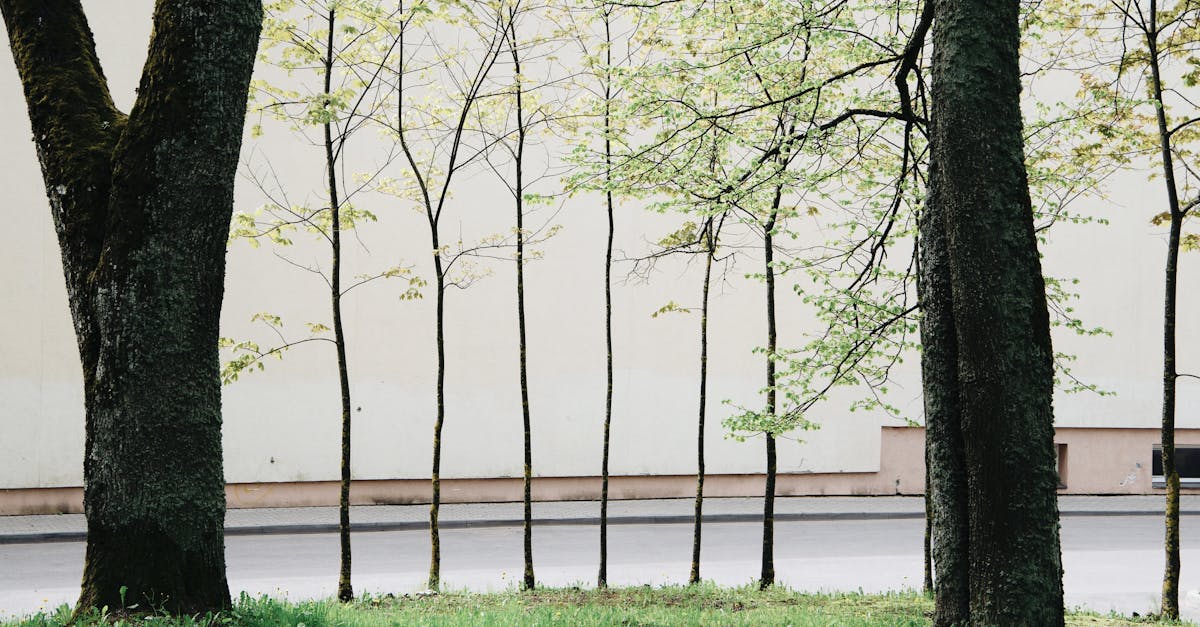
Benefits of Using Slate for Wall Cladding
Table Of Contents
Natural Insulation Properties
Slate is renowned for its natural insulation capabilities, making it an ideal choice for wall cladding. This material helps maintain a consistent indoor temperature by minimising heat transfer. As a result, buildings with slate walls tend to have better temperature regulation, leading to increased comfort for occupants.
The density of slate contributes to its insulating properties. It effectively traps air within its layers, which acts as a barrier against both cold and heat. This natural feature not only enhances the energy efficiency of the building but also reduces reliance on heating and cooling systems, offering a sustainable solution for modern living.
Energy Efficiency Benefits
Slate is known for its excellent thermal mass, allowing it to absorb, retain, and release heat efficiently. This characteristic means that walls clad in slate can help regulate indoor temperatures, reducing reliance on heating and cooling systems. By maintaining a more consistent temperature, homeowners can enjoy a comfortable living environment while lowering their energy consumption.
In addition to its thermal properties, slate’s durability contributes to its energy efficiency benefits. Unlike other materials that may require frequent replacement or maintenance, slate is long-lasting and resilient. This longevity translates into reduced resource use and lower overall energy expenditure during a building's lifecycle, reinforcing slate as a sustainable choice for wall cladding.
Sound Absorption Qualities
The dense structure of slate provides exceptional sound absorption properties, making it an ideal choice for wall cladding in settings where noise control is a priority. Unlike many other materials, slate efficiently dampens sound waves, reducing echo and creating a more tranquil environment. This quality is particularly beneficial in urban areas or busy commercial spaces, where external noise can be a significant distraction.
In residential applications, using slate for wall cladding can enhance the comfort of living spaces by minimising unwanted sounds from adjacent rooms or outside. The natural absorption capabilities of slate can contribute to a serene atmosphere, allowing homeowners to enjoy a peaceful retreat in their own home. Furthermore, this added sound insulation can improve the overall quality of life and enhance the functionality of spaces meant for relaxation or conversation.
Creating a Quieter Environment
The unique structure of slate gives it the ability to absorb sound effectively. This natural stone has a dense composition that helps minimise noise transmission. When used for wall cladding, slate acts as a barrier, reducing the impact of external sounds. Spaces that incorporate slate tend to feel more serene, creating a peaceful atmosphere that benefits both homes and commercial properties.
In urban settings, where noise pollution is a common issue, slate can transform living or working areas into retreats from the hustle and bustle. The reduction in noise levels fosters better concentration and relaxation. As a result, choosing slate for wall cladding can significantly enhance the quality of life by promoting a calmer environment.
CostEffectiveness Over Time
Slate wall cladding presents a valuable investment for property owners due to its long-lasting nature. Its exceptional durability means it can withstand harsh weather conditions and resist wear and tear. Unlike other materials, slate does not require frequent replacement or extensive maintenance, leading to reduced costs associated with upkeep. The initial higher expenditure is often offset by its longevity, making it a wise choice for those looking to enhance the aesthetic of their home while maintaining financial prudence.
Investing in slate also leads to significant savings in repairs over time. Traditional wall materials may suffer from issues such as rot, warping, or fading, necessitating regular repairs or replacements. On the other hand, slate’s natural composition is resistant to many of these problems. This resilience not only saves homeowners from unexpected costs but also contributes to a hassle-free living environment. Over the years, the financial benefits, combined with its low maintenance requirements, make slate an appealing option in wall cladding choices.
LongTerm Savings on Repairs
Slate wall cladding presents an opportunity for significant financial savings over time due to its durability and low maintenance requirements. Once installed, slate is highly resistant to decay, rot, and insect damage. This resilience means that homeowners are less likely to face frequent repairs or replacements compared to other materials, reducing overall maintenance costs.
Additionally, the long lifespan of slate contributes to its cost-effectiveness. With proper installation and care, slate can last for decades, often outliving other cladding options. This longevity not only minimises the need for repairs but also lessens the environmental impact associated with replacing materials more frequently. Investing in slate wall cladding can therefore lead to substantial savings in both time and money.
FAQS
What are the natural insulation properties of slate?
Slate has excellent natural insulation properties, which help regulate indoor temperatures by keeping spaces warmer in winter and cooler in summer.
How does using slate for wall cladding contribute to energy efficiency?
By providing effective insulation, slate reduces the reliance on heating and cooling systems, leading to lower energy consumption and reduced utility bills.
Can slate help in reducing noise levels within a building?
Yes, slate's dense structure allows it to absorb sound effectively, creating a quieter environment by minimising external noise intrusion.
What are the long-term savings associated with using slate for wall cladding?
Although the initial investment may be higher, slate's durability and low maintenance needs result in significant long-term savings on repairs and replacements.
Is slate environmentally friendly as a wall cladding material?
Yes, slate is a natural stone that is abundant and can be sustainably sourced, making it an eco-friendly choice for wall cladding.
Related Links
How to Choose the Right Slate for Your ProjectHistory and Origins of Slate as a Building Material
The Environmental Impact of Using Slate in Construction
Cost Analysis of Slate Wall Cladding
Common Mistakes to Avoid When Installing Slate Wall Cladding
Design Ideas Featuring Slate Wall Cladding